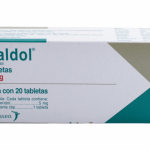What Does Haldol Do to a Normal Person?

Antipsychotic drugs are approved mainly for treating schizophrenia and bipolar disorder, but they are also used for many other purposes. One of the most controversial is reducing disruptive behavior among elderly people with dementia. In the last few years, the FDA has required drug labels to carry warnings regarding this still-common practice, and studies continue to raise questions about its risks and benefits.
Concern about this issue is not new. A federal law passed in 1987 provides that residents in facilities receiving government support should not receive antipsychotics for problems that are simply inconvenient for caregivers—such as wandering, insomnia, or uncooperativeness—but only for agitated, aggressive, or psychotic behavior that is distressing to the patients or dangerous to others. But the guidelines have not prevented continued heavy use in institutions for the elderly.
What is Haldol?
Haldol is a common brand of haloperidol a medication used to treat psychotic disorders. Haloperidol is also used to control motor tics (uncontrollable need to repeat certain body movements) and verbal tics (uncontrollable need to repeat sounds or words) in adults and children who have Tourette’s disorder (a condition characterized by motor or verbal tics).
Haldol is also used to treat severe behavioral problems such as explosive, aggressive behavior, or hyperactivity in children who cannot be treated with psychotherapy or with other medications. Haloperidol is in a group of medications called conventional antipsychotics. It works by decreasing abnormal excitement in the brain. Haldol comes as a tablet and concentrated liquid to take by mouth. It is usually taken two or three times a day. Janssen discontinued Haldol injection in November 2020.
What Does Haldol Do to a Normal Person?
If you take Haldol and don’t need it, you run the risk of developing similar side effects as those with mental health issues. Haldol can help you to think more clearly, feel less nervous, and take part in everyday life if you have symptoms of psychotic disorders. It can also help prevent suicide in people who are likely to harm themselves.
However, there is limited evidence on how normal people without psychotic disorders respond to Haldol, but the side effects are similar and can include:
- Breast enlargement, irregular menstrual periods
- Dizziness
- Drowsiness
- Feeling restless or anxious
- Headache
- Sleep problems (insomnia)
- Spinning sensation
- Uncontrolled muscle movements
High doses or long-term use of haloperidol can cause a serious movement disorder that may not be reversible. The longer you use Haldol, the more likely you are to develop this disorder, especially if you are a woman or an older adult.
Call your doctor at once if you have:
• uncontrolled muscle movements in your face (chewing, lip-smacking, frowning, tongue movement, blinking or eye movement);
• muscle spasms in your neck, tightness in your throat, trouble swallowing;
• rapid changes in mood or behavior;
• fast or pounding heartbeats, fluttering in your chest, shortness of breath, and sudden dizziness (like you might pass out);
• cough with mucus, chest pain, feeling short of breath;
• low white blood cell counts–fever, chills, mouth sores, skin sores, sore throat, cough, trouble breathing; or
• severe nervous system reaction–very stiff (rigid) muscles, high fever, sweating, confusion, fast or uneven heartbeats, tremors, feeling like you might pass out.
This is not a complete list of side effects and others may occur. Call your doctor for medical advice about side effects. You may report side effects to FDA at 1-800-FDA-1088.





